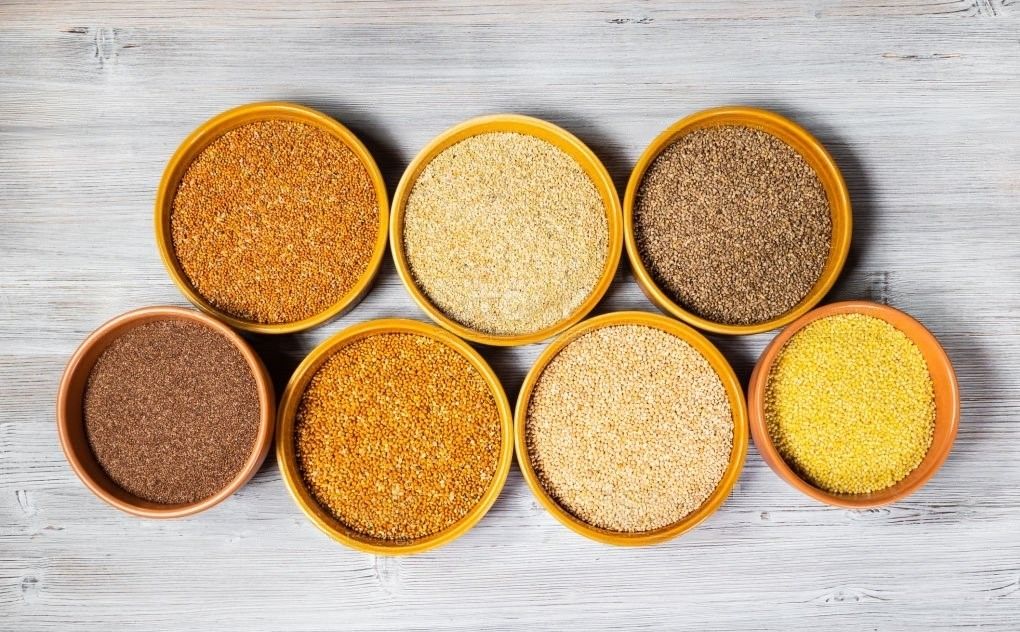Whole Grains and PCOS: Can They Improve Symptom Management?
Whole grains present a favorable dietary strategy, especially for the Indian demographic, where the prevalence of PCOS is significant.

Polycystic Ovary Syndrome (PCOS) is a prevalent hormonal disorder affecting a substantial number of women in India. It brings with it a range of challenges, including irregular menstrual cycles, ovarian cysts, and symptoms such as hirsutism and weight gain. One of the underlying factors in PCOS is insulin resistance, which can lead to metabolic disturbances and an increased risk of type 2 diabetes. As dietary interventions gain recognition in managing PCOS, the role of whole grains has piqued interest. In this blog, we delve into the scientific research behind whole grains and their potential to enhance symptom management for PCOS, particularly in the Indian context.
Understanding PCOS and Its Prevalence
PCOS is a hormonal disorder that disrupts the endocrine system, resulting in irregular menstrual cycles, fertility issues, and various physical manifestations. In India, the prevalence of PCOS is substantial, with around 1 in 5 women of reproductive age estimated to be affected. The challenges posed by PCOS extend beyond reproductive health, impacting metabolic well-being and overall quality of life.
Whole Grains: A Nutritional Powerhouse
Whole grains, such as wheat, rice, millet, and barley, offer a wealth of nutrients due to their intact bran, germ, and endosperm. This composition distinguishes them from refined grains, which lack these nutritious components. Whole grains are rich in dietary fiber, vitamins, minerals, and antioxidants, making them a valuable dietary choice.
The Connection Between Whole Grains and PCOS Symptom Management
- Stabilizing Blood Sugar: Whole grains are a source of complex carbohydrates that are digested slowly, leading to a gradual release of glucose into the bloodstream. This gradual release helps prevent rapid spikes in blood sugar levels, contributing to improved insulin sensitivity. For Indian individuals with PCOS, managing blood sugar is particularly crucial given the higher susceptibility to insulin resistance.
- Promoting Gut Health: The fiber content in whole grains supports gut health by acting as prebiotics – nourishment for beneficial gut bacteria. A balanced gut microbiome is associated with better metabolic outcomes, making whole grains an important dietary component for managing PCOS-related metabolic disturbances.
- Addressing Hormonal Imbalance: Whole grains provide an array of nutrients, including B vitamins and minerals like magnesium, which play roles in hormone regulation. In the context of PCOS, where hormonal imbalances are a hallmark, these nutrients can potentially contribute to alleviating symptoms like irregular menstrual cycles.
- Anti-Inflammatory Properties: Chronic inflammation is linked to PCOS and its associated complications. Whole grains possess anti-inflammatory properties, which can aid in reducing inflammation and mitigating the impact on PCOS symptoms.
Examples of Whole Grains and Their Benefits
- Brown Rice: Commonly consumed in India, brown rice retains its bran layer, offering higher fiber content and nutrients compared to polished white rice. The fiber content aids in blood sugar management and supports gut health.
- Millet: Millets are traditional Indian grains that have gained attention for their nutritional profile. Rich in fiber and nutrients like magnesium, millets offer potential benefits for insulin sensitivity and overall metabolic health.
- Whole Wheat: Whole wheat is a staple in Indian diets. It provides dietary fiber, B vitamins, and antioxidants, all of which contribute to better insulin sensitivity and hormonal balance.
SUMMARY
In the realm of PCOS symptom management, whole grains emerge as a promising dietary approach, particularly for the Indian population where PCOS prevalence is substantial. The nutrient density and potential benefits of whole grains, such as stabilizing blood sugar, promoting gut health, addressing hormonal imbalances, and reducing inflammation, make them a valuable addition to a holistic PCOS management strategy.
Jayti Shah is a Clinical Nutritionist with a master's degree in Clinical Nutrition and Dietetics. She is a member of the Indian Dietetic Association (IDA). Over the last 9 years, she has helped 400 clients in their clinical and weight loss journeys. She works with SocialBoat as a nutrition consultant.
At SocialBoat, we offer custom diet plans and guided workouts to help you achieve your goals in a 360-degree approach. Our gamified experience ensures that you don’t find workouts boring and we reward you for being consistent with your efforts.

REFERENCES
- Misra A., et al. (2019). Polycystic Ovary Syndrome in Indian Women: Challenges and Solutions. Indian Journal of Endocrinology and Metabolism, 23(5), 482-484.
- Vadivel V., et al. (2018). Millet Grains: Nutritional Quality, Processing, and Potential Health Benefits. Comprehensive Reviews in Food Science and Food Safety, 17(5), 1265-1281.
- Zhang Z., et al. (2015). A Review of the Role of Whole Grains in the Prevention and Management of Type 2 Diabetes. European Journal of Clinical Nutrition, 69(7), 763-770.
- Jonnalagadda S. S., et al. (2011). Putting the Whole Grain Puzzle Together: Health Benefits Associated with Whole Grains—Summary of American Society for Nutrition 2010 Satellite Symposium. The Journal of Nutrition, 141(5), 1011S-1022S.
- Shobana S., et al. (2018). Millets: A Solution to Agrarian and Nutritional Challenges. Critical Reviews in Food Science and Nutrition, 58(4), 617-635.
